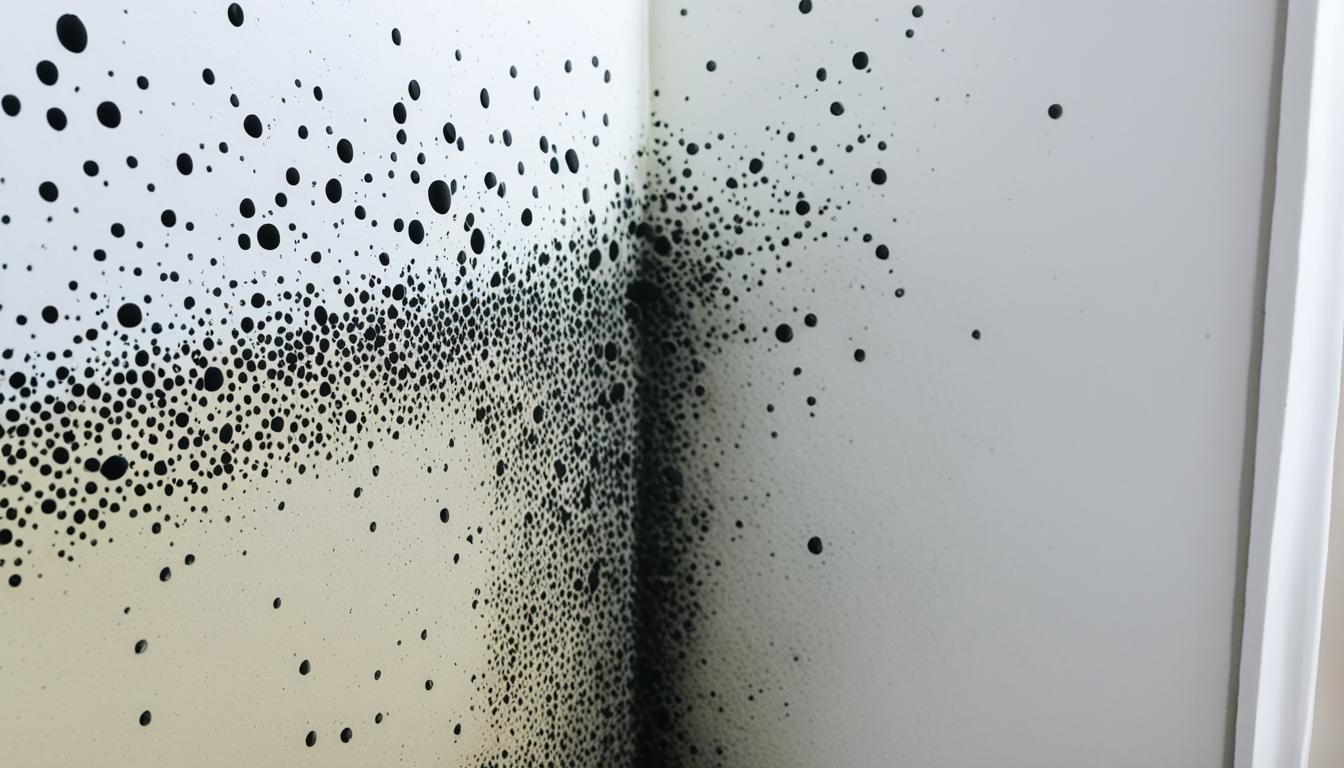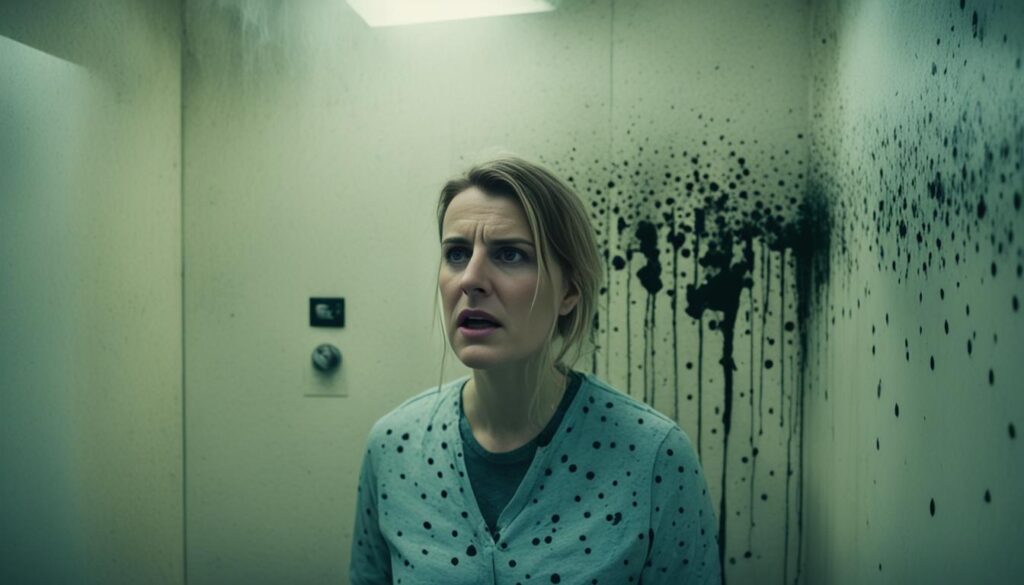
Black Mold Side Effects Miami Residents Must Know
Welcome to our informative article on the critical side effects of black mold exposure that Miami residents must be aware of. As one of the coastal cities in the United States, Miami’s warm and humid climate creates an ideal environment for black mold growth. Understanding the potential side effects is crucial for the health and well-being of its residents.
Key Takeaways:
- Black mold exposure in Miami can have severe health implications for residents.
- Respiratory issues, allergic reactions, and other physical manifestations are common symptoms of black mold exposure.
- Miami residents should be proactive in recognizing the signs and taking measures to address any mold issues in their homes or workplaces.
- Seeking professional help and maintaining good ventilation and moisture control are vital in preventing black mold growth and exposure.
- Regular inspections and taking immediate action to address water leaks or moisture buildup can help reduce the risks associated with black mold exposure in Miami.
Potential Health Risks Associated with Black Mold in Miami
When it comes to black mold, Miami residents need to be aware of the potential health risks that come with exposure. While black mold is commonly found in humid environments, its presence in residential areas can pose significant health concerns.
Exposure to black mold can have adverse effects on the respiratory system, causing symptoms such as coughing, wheezing, and shortness of breath. Individuals with pre-existing respiratory conditions, such as asthma or allergies, may experience more severe respiratory issues when exposed to black mold.
The immune system can also be compromised by black mold exposure. Mold spores can trigger allergic reactions, leading to symptoms such as sneezing, runny or stuffy nose, and itchy eyes. Prolonged exposure to black mold may weaken the immune system, making individuals more susceptible to infections and respiratory illnesses.
Moreover, black mold exposure can have broader implications on overall well-being. Studies have shown that prolonged exposure to black mold may contribute to chronic fatigue, headaches, difficulty concentrating, and even memory loss. These symptoms can significantly impact daily life and productivity, affecting both physical and cognitive function.
“The health risks associated with black mold exposure should not be underestimated. It is crucial for Miami residents to take proactive measures to prevent mold growth in their homes and seek professional assistance for effective remediation.”
To further understand the potential health risks associated with black mold, it’s essential to be aware of the warning signs and symptoms. Detecting early signs of black mold exposure can help individuals take prompt action to mitigate its effects and safeguard their health.
Next, we will explore how to recognize the signs of black mold exposure in Miami and discuss the symptoms that residents should be on the lookout for.
Recognizing Signs of Black Mold Exposure in Miami
Recognizing the signs of black mold exposure is crucial for residents in Miami. Identifying the symptoms early on can help individuals take necessary precautions to protect their health. Here are some common signs and symptoms associated with black mold exposure:
- Respiratory Issues: Individuals exposed to black mold may experience respiratory problems such as coughing, wheezing, shortness of breath, or a persistent sore throat.
- Allergic Reactions: Allergic reactions are another sign of black mold exposure. These can manifest as nasal congestion, sneezing, itchy or watery eyes, skin rashes, or hives.
- Neurological Symptoms: Some individuals may experience neurological symptoms like headaches, dizziness, difficulty concentrating, or memory problems in cases of prolonged black mold exposure.
- Physical Manifestations: In some instances, black mold exposure can lead to physical manifestations, including fatigue, muscle aches, joint pain, or unexplained weight loss.
If you suspect that you or your family members have been exposed to black mold, it is essential to consult with a healthcare professional. They can evaluate your symptoms, conduct the necessary tests, and provide appropriate medical advice.
Remember, early detection and prompt action are crucial in mitigating the potential health risks associated with black mold exposure.
To help you further understand the signs and symptoms, refer to the table below:
| Signs of Black Mold Exposure | Symptoms |
|---|---|
| Respiratory Issues | Coughing, wheezing, shortness of breath, sore throat |
| Allergic Reactions | Nasal congestion, sneezing, itchy/watery eyes, skin rashes, hives |
| Neurological Symptoms | Headaches, dizziness, difficulty concentrating, memory problems |
| Physical Manifestations | Fatigue, muscle/joint pain, unexplained weight loss |
It’s important to note that these symptoms may vary from person to person, and the severity of the symptoms can depend on factors such as the duration and level of exposure to black mold. If you suspect the presence of black mold in your home or workplace, it is advisable to contact a professional mold remediation service to assess and address the issue effectively.

Conclusion
In conclusion, it is crucial for Miami residents to be aware of the side effects of black mold exposure. The potential health risks associated with black mold can have a significant impact on the respiratory system, immune system, and overall well-being. Recognizing the signs of black mold exposure, such as respiratory issues and allergic reactions, is vital in taking timely action to address mold issues and protect one’s health.
It is important to understand that black mold side effects are not to be taken lightly. Immediate attention should be given to any signs of black mold in your home or workplace. By addressing mold issues promptly, Miami residents can mitigate the potential health risks and create a safer living environment for themselves and their families. Regular inspections, proper ventilation, and moisture control are essential for preventing black mold growth.
Remember, the key to minimizing the side effects of black mold exposure in Miami is early detection and proactive measures. By staying informed and taking necessary precautions, residents can safeguard their well-being and create a healthier environment. Don’t underestimate the seriousness of black mold side effects—prioritize your health and take action to eliminate mold growth whenever it’s detected.




